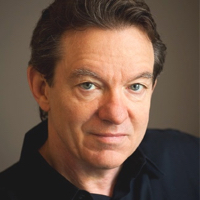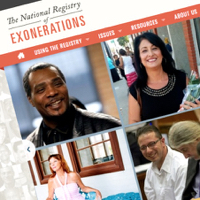Rascals case in brief
In the beginning, in 1989, more than 90 children at the Little Rascals Day Care Center in Edenton, North Carolina, accused a total of 20 adults with 429 instances of sexual abuse over a three-year period. It may have all begun with one parent’s complaint about punishment given her child.
Among the alleged perpetrators: the sheriff and mayor. But prosecutors would charge only Robin Byrum, Darlene Harris, Elizabeth “Betsy” Kelly, Robert “Bob” Kelly, Willard Scott Privott, Shelley Stone and Dawn Wilson – the Edenton 7.
Along with sodomy and beatings, allegations included a baby killed with a handgun, a child being hung upside down from a tree and being set on fire and countless other fantastic incidents involving spaceships, hot air balloons, pirate ships and trained sharks.
By the time prosecutors dropped the last charges in 1997, Little Rascals had become North Carolina’s longest and most costly criminal trial. Prosecutors kept defendants jailed in hopes at least one would turn against their supposed co-conspirators. Remarkably, none did. Another shameful record: Five defendants had to wait longer to face their accusers in court than anyone else in North Carolina history.
Between 1991 and 1997, Ofra Bikel produced three extraordinary episodes on the Little Rascals case for the PBS series “Frontline.” Although “Innocence Lost” did not deter prosecutors, it exposed their tactics and fostered nationwide skepticism and dismay.
With each passing year, the absurdity of the Little Rascals charges has become more obvious. But no admission of error has ever come from prosecutors, police, interviewers or parents. This site is devoted to the issues raised by this case.
On Facebook
Click for earlier Facebook posts archived on this site
Click to go to
Today’s random selection from the Little Rascals Day Care archives….
Click for earlier Facebook posts archived on this site
Click to go to
Today’s random selection from the Little Rascals Day Care archives….
‘The most fundamental questions of fairness’
July 5, 2013
“RALEIGH – During a hearing at the state Court of Appeals, Chief Judge Gerald Arnold repeatedly asked a state prosecutor about the fairness of testimony by (Bob) Kelly’s former attorney in Edenton. Arnold said the attorney had, in effect, testified that he believed in Kelly’s innocence until he learned his child had been abused.
“ ‘How can you argue that it was not extremely prejudicial?’ the judge asked.
“Associate Attorney General Ellen Scouten argued that Chris Bean did not divulge confidential information and did not violate an attorney-client relationship with Kelly. She said Bean testified as a parent and a crime victim.
“Arnold said Bean, now a district court judge, had gone beyond describing what he had seen and witnessed as a parent.
“ ‘This boils down to the most fundamental questions of fairness,’ Arnold said. ‘When you have an attorney testifying that “I was Mr. Kelly’s attorney and I believed in him very strongly until I learned the truth, that is to say that he’s guilty, and then I was shattered.” How can there be more prejudicial, stronger evidence put before a jury than to have a former attorney, the defendant’s attorney say that?’
“Scouten said that because the defense had contended that accusers in Edenton were hysterical people on a witch hunt it was fair to allow the state to show the type of people involved.
“ ‘Mr. Bean and his wife were reputable, respected thoughtful, educated people – not the type of people that would be swept up by community hysteria,’ she said.”
– From “Appeal of 2 defendants in Little Rascals case draws a crowd” in the News & Observer (Jan. 10, 1995)
Given this line of questioning, it came as no great surprise when four months later the Court of Appeals overturned the convictions of both Kelly and Dawn Wilson.
Bean’s unfettered opinionating was only one of three major defects cited by the court, the others being the withholding of exculpatory evidence by prosecutors and the testimony of parents as expert witnesses.
The prosecution got off light – the brief filed by appellate defender Mark Montgomery claimed no fewer than 222 potentially reversible errors.
When the people we trust can’t be trusted

lawrencewright.com
Lawrence Wright
Jan. 25, 2017
“Why is there such a cultural bias toward stories of abuse – and especially toward grotesque and absurd tales, even when there is no reliable evidence that any crime occurred in the first place?
“The very people we count on to protect our society – prosecutors, police, social workers, jurors, even parents – are eliciting fantasies from children that express our worst collective fears. ….
“The libel that our society has imposed on child-care workers is a kind of projection of guilt for the damage that we ourselves have done, as parents and as a society. We have given our children to strangers to rear, and it makes us uneasy and fearful. Is it any wonder we have a bad conscience?…. ”
– From “Child-care Demons” by Lawrence Wright in The New Yorker (Oct. 3, 1994)
![]()
In Raleigh, even justice delayed is hard to come by
Dec. 3, 2012
Exoneration is in the air!
From Texas to New York – and of course here in North Carolina – more and more prosecutorial abuses are being dug up, dusted off and exposed to long-delayed doses of daylight.
If you’re keeping score, the National Registry of Exoneration has just hit quadruple digits – that’s Bob Kelly, Dawn Wilson and 998 other wrongfully convicted defendants.
So what are the prospects that the State of North Carolina will at last release a Duke-lacrosse-style statement of innocence for the Edenton Seven?
Since last summer, when my petition was kissed off by Mark Davis, general counsel to Gov. Bev Perdue, and I was advised to try Attorney General Roy Cooper, not a peep has been heard in response. It would take a greater optimist than me to believe this silence suggests ongoing thoughtful contemplation.
As the governor prepares to leave office, a valued ally of littlerascalsdaycarecase.org used his access to lobby on behalf of the defendants. But pardon applications have been torrential, he was told, and the Edenton Seven case isn’t among those Perdue is considering.
That still leaves the attorney general – or does it, Mr. Cooper?
Another bumper harvest for National Registry of Exonerations
 March 20, 2017
March 20, 2017
“America saw another record year for the number of prisoners being exonerated, according to the National Registry of Exonerations, a project of University of California Irvine Newkirk Center for Science & Society, University of Michigan Law School, and Michigan State University College of Law.
“For 2016, 166 people were exonerated of crimes and released from prison, 52 of them for murder. Of all the exonerations, 70 cases involved official misconduct of some sort, and in 74 of the cases, convictions came from guilty pleas. And in 94 cases (also a record) it turned out that no actual crime occurred at all. These were mostly drug cases but also some child sex abuse cases. Most famously, the San Antonio Four, four women convicted in 1998 in a fabricated satanic child sex abuse ring scandal, were released in 2016 after it finally became clear the crimes never occurred.”
– From “Decades of exoneration stats show blacks more likely to wrongfully convicted” by Scott Shackford at reason.com (March 7)
Of the Edenton Seven, only Bob Kelly and Dawn Wilson, whose convictions were overturned, qualify for the National Registry of Exonerations. As spokesman Ted Koehler told me five years ago, “The Edenton case was a terrible witch hunt. Regretfully, though, [Betsy] Kelly’s and [Scott] Privott’s guilty pleas and the dropped charges against [Robin] Byrum, [Shelley] Stone, and [Darlene] Harris do not fit our definition of an exoneration….”
![]()











0 CommentsComment on Facebook